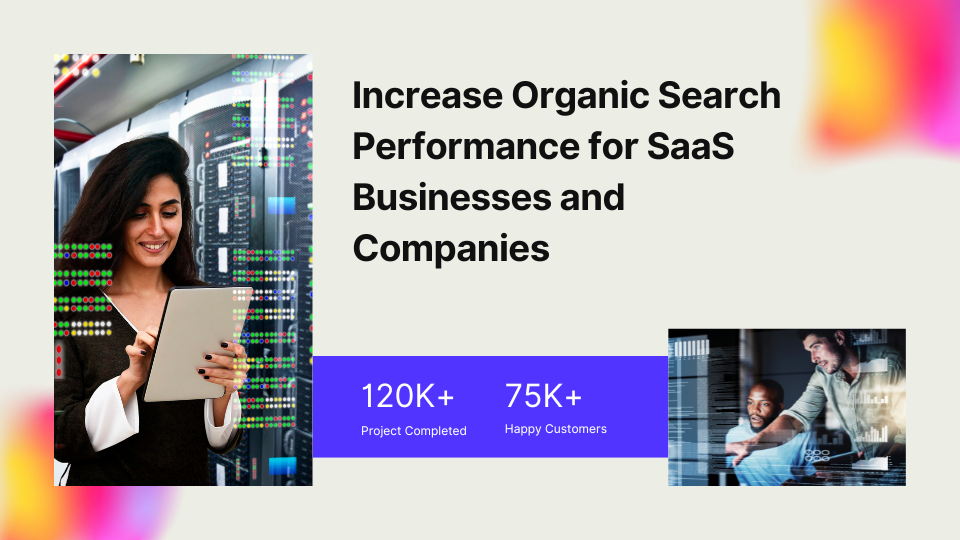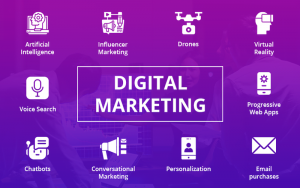SEO for SaaS: Increase Organic Search Performance for SaaS Businesses and Companies

SEO for SaaS entails search engine optimization activities, strategies, planning, analysis, diagnosing, training, and execution to increase a SaaS company’s organic visibility. The millions of SaaS business concepts are linked to SEO for SaaS. SaaS SEO is connected to B2B SEO and DTC SEO. SaaS SEO includes design firms, AI content writers, keyword research tools, text to speech tools, and other services.
Also Read: –SEO Silo Structure: Step-by-Step Guide To Rank No #1
SaaS SEO and Brand Value are inextricably linked. A SaaS Business cannot be successful in Google SEO unless it provides a brand value. Since the Vincent Update, having a brand search demand, or brand auto-suggestions, and recognition in Google’s own Knowledge Base is required.
SEO for SaaS (Software as a Service) companies is a unique challenge due to the competitive nature of the industry and the technical nature of the product. Here’s a comprehensive guide to help SaaS businesses boost their organic search performance:
1. Understand Your Audience:
- Buyer Personas: Identify and create detailed profiles of your target customers. Understand their pain points, needs, and how your software addresses them.
- Customer Journey: Map out the stages a potential customer goes through, from awareness to conversion.
2. Keyword Research:
- Industry-Specific Terms: Understand the jargon and terms commonly used in your industry.
- Long-tail Keywords: These are longer, more specific keywords that can drive targeted traffic. E.g., “project management software for remote teams”.
- Competitor Analysis: Identify keywords your competitors rank for and find gaps in your own strategy.
3. On-Page SEO:
- Optimized Meta Tags: Ensure each page has a unique title tag and meta description that includes your target keywords.
- High-Quality Content: Create content that addresses user queries and provides value. This can be blog posts, whitepapers, webinars, etc.
- Internal Linking: Use descriptive anchor text and link to relevant pages within your site to help users (and search engines) navigate your content.
4. Technical SEO:
- Site Speed: Use tools like Google’s PageSpeed Insights to ensure your site loads quickly.
- Mobile Optimization: Ensure your site is responsive and provides a good user experience on mobile devices.
- Structured Data: Use Schema markup to provide search engines with additional information about your content.
- XML Sitemap: Helps search engines crawl and index your site more efficiently.
5. Content Marketing:
- Educational Content: Given the technical nature of SaaS, educational content like tutorials, how-tos, and guides can be invaluable.
- Case Studies: Showcase how your software has helped other businesses.
- Guest Posting: Write for reputable industry blogs to gain backlinks and authority.
6. Backlink Building:
- Quality over Quantity: Aim for high-quality, relevant backlinks.
- Partnerships: Collaborate with complementary SaaS providers or industry influencers.
- Directories: List your software on SaaS directories and review sites.
7. User Experience (UX):
- Clear CTAs: Ensure it’s easy for users to understand the next steps, whether it’s signing up for a trial or requesting a demo.
- Engaging Design: A clean, intuitive design can reduce bounce rates and improve conversions.
8. Monitor and Analyze:
- Google Analytics: Track website traffic, user behavior, and conversions.
- Google Search Console: Monitor site performance, index status, and any crawl errors.
- Continuous Learning: The SaaS industry evolves rapidly. Stay updated with the latest trends, competitor moves, and customer feedback
To boost SEO efforts, a SaaS company should embrace omnichannel marketing. SEO agencies, consultants, and freelancers assist others in improving organic search reachability and visibility. Every day, new SaaS companies are formed. They rely heavily on SEO efforts. Most SaaS companies face insurmountable competition as technology advances and marketing becomes increasingly prevalent.
Technical SEO, Semantic SEO, Social Signals, Shares, and Engagement, as well as Local SEO, are required for SaaS Company SEO.
Customer evaluations, testimonial videos, pictures, and real-world entity recognition are required for SaaS companies’ headquarters, staff, founders, CEOs, and interviewees. A SaaS company must demonstrate that they are accountable and responsible in their service delivery. Because SaaS SEO is based on branding, it must be done through content syndication through news sources, technology blogs, or mentions and link referrals. The SaaS SEO tactics emphasize long-term growth rather than daily or weekly gains.
Promoting content to acquire links, raising rankings with organic traffic, achieving top positions on the Google SERP, ranking web pages quickly on Google, and other facets of search engine optimization are important for SaaS SEO.
SaaS SEO lowers cost-per-acquisition. The cost-per-acquisition represents the expense of acquiring a single customer. The lower cost-per-acquisition allows SaaS companies to focus on R&D rather than accounting.
SaaS for SEO aids in the conversion of clients from other channels. A consumer or visitor can arrive at a website through a variety of methods. It might be via an email or a video, but search engine optimization encompasses all of these areas by combining user experience optimization.
Conversion rate optimization is included in SaaS for SEO. Conversion rate optimization is the process of raising conversion rates in order to increase a company’s earnings. A higher conversion rate means a higher and larger profit for the company.
The major goal of improving a company’s rankings is to provide trust, competence, and authority. SaaS websites are YMYL, or your money or your life. As a result, optimization for SaaS enterprises includes the YMYL Website Algorithms. YMYL Algorithms are designed to safeguard web search engine users from fraudulent websites that lack knowledge, trustworthiness, or contentment. Google’s YMYL Website Algorithms are announced in Google’s Quality Rater Guides.
SaaS SEO with YMYL Understanding offers a more effective approach to the SaaS target market. An SEO can provide improved search engine optimization tactics and efforts, as well as SOPs, based on the target market, audience, and user profiles.
Conclusion:
SEO for SaaS is a long-term game. While it requires consistent effort, the rewards in terms of organic traffic, brand visibility, and customer trust can be substantial. By understanding your audience, optimizing your site, and providing valuable content, you can position your SaaS business for organic search success.








